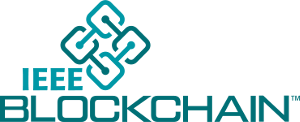Blockchain-Enabled Transactive Energy
Introduction
Blockchain-enabled transacted energy (BCTE) is a technology that has the potential to create an open, trusted, and transparent energy marketplace. This is important to society as it has the potential to lower the cost of renewable energy investments, improve our ability to combat climate change, encourage more participants into the renewables market, and increase the amount of innovation through transparent standards and access to the grid. IEEE, as the world’s premier professional organization, is well-positioned to lead this work by applying institutional knowledge of well over a hundred years of experience in the power and energy vertical and through its leadership in establishing best practices, architectures, frameworks, and standards that are critical to the design and development of this global technology.
Currently, there is very little being done to standardize, organize and advance the application of BCTE. Any efforts in this regard are being dominated by stakeholders that have biased points of view and that are mostly producing proprietary solutions. While this work is valuable in developing standards, it takes the credibility of a trusted independent voice to create standards that can jumpstart a rapid advance in technological development by marshaling important stakeholder groups. Therefore, based on its history, core competencies, and vast professional network, IEEE is in a great position to lead the design of BCTE and help move the global capabilities forward.
Guide to Transactive Energy: What Everyone Needs to Know
Energy efficiency is more important than ever before. High electricity demand, aging power grids, and climate disasters are straining our current energy system. As a result, more people are looking to optimize energy usage—and transactive energy may offer an answer.
A transactive energy framework can help everyone from consumers to corporations benefit from improved energy efficiency and profit in the process. Learn more about how this system works, its economic benefits, and more in this guide to transactive energy.
Blockchain Transactive Energy (BCTE) Position Paper Now Available
 IEEE Blockchain Transactive Energy (BCTE) Position Paper
IEEE Blockchain Transactive Energy (BCTE) Position Paper
A Bridge to a Democratized Energy Marketplace
This Position Paper describes the basic framework and principles for using blockchain technology in power and energy domains with the emerging participatory grid. A key goal is the development of the most promising global Transactive Energy use cases which can be advanced toward broader commercialization using blockchain technology.
IEEE as a Leader
Blockchain-enabled transacted energy is a critical application of technology in an emerging market place that requires transparent and open standards in order for it to more rapidly develop and achieve the opportunity of having a larger global impact.
In order to drive standards that will enable the adoption and development of technologies in applications within BCTE there are a number of activities that need to be undertaken. These include the development of architectures, frameworks, and applied models/patterns. These will all enable multiple stakeholders to help design, agree, and publish standards for the benefit of the larger audience.
IEEE is an obvious choice to lead these efforts. Within the organization, there are numerous Societies, Councils, and Technical Communities that are uniquely prepared to work on this project, or are in some instances already working some aspect of it. These include IEEE Communications Society (ComSoc), IEEE Power and Energy Society (PES), IEEE Smart Grid Technical Community, IEEE Blockchain Technical Community, and in a departure from typical IEEE norms, an IEEE Section based team working towards solving a community needs that is focused on Blockchain-Enabled Transactive Energy. Given these bodies and resources, the level of interest in and outside of IEEE, coupled with IEEE’s core competency in power and energy, IEEE is in a great position to rapidly advance the field of BCTE as the predominant international thought leader.
Strategy and Implementation
To support the development of best practices, architecture, frameworks, and standards, the IEEE BCTE team will be creating the following deliverables which will be revenue-producing products and services:
- The State of Grid and BCTE Whitepaper
- Fit for Purpose Conformity Assessment / Short Roadmap for BCTE
- Architectural Vision Whitepaper (includes High-Level Functional & Non-Functional Requirements (includes items such as location/latency, performance, availability, extensibility, resilience)
- Interoperability Framework (High-Level)
- Standards Framework and current state of standards development
- Governance Framework (Technology and Process)
- Governance Framework (Policy and Regulatory)
- High-Level ICT Reference Architectures for BCTE (Data (includes Privacy & Security) Application/Integration)
- High-Level Technology/Infrastructure Reference Architectures for BCTE (Communications, Power Grid, IT, Device)
- Testing Regiment and Blueprint
- POC for Use Cases, Results, and Analysis
Other revenue opportunities for IEEE also to include the following:
- Increased membership based on interest in the topic
- Paid workshops
- Sponsorship or Patronage
- Educational materials and onsite tutorials
Leadership and Participation
This work will be conducted as part of a NIC funded initiative led by the IEEE Blockchain Initiative. It is the goal of this team to help advance IEEE as the premier thought leader in the field of BCTE. This can only be done by expediting the development key standards and best practices that need to be established to feature the important components of infrastructure, communications, logic, and technology. Furthermore, these efforts will support the advancement of technology globally, drive pilot activities, and create demonstrations of opportunity and benefit.
To implement and deliver this work the following groups will be involved:
- IEEE Power and Energy Society
- IEEE Communications Society
- IEEE Computer Society
- IEEE Smart Grid Technical Community
- IEEE Blockchain Technical Community
- IEEE Society on the Social Implications of Technology
- IEEE Computer Society Technical Community on Privacy and Security
- IEEE Standards Association and other SDOs
- Government Policy and Regulatory entities such as FERC
- Power Industry Partners
- Quasi Governmental Regulatory bodies such as NERC
- NGO based Regulatory advisory groups such as Gridwise Alliance
Furthermore, IEEE will engage external partners and prosumers to be part of these efforts which are not named above.
Conclusion
Blockchain-enabled transacted energy (BCTE) is a technology that has the potential to dramatically impact society and how we engage with power and electricity. The design, development, and growth of this technology are currently limited by the standards and common vision across all stakeholders. IEEE is in a great position to leverage its expertise, resources, and network to advance this technology in order to make a significant impact on society.



